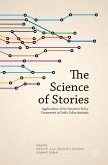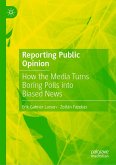Narrative Politics explores two puzzles. The first has long preoccupied social scientists: How do individuals come together to act collectively in their common interest? The second is one that has long been ignored by social scientists: Why is it that those who promote collective action so often turn to stories? Why is it that when activists call for action, candidates solicit votes, organizers seek new members, generals rally their troops, or coaches motivate their players, there is so much story-telling? Frederick W. Mayer argues that answering these questions requires recognizing the power of story to overcome the main obstacles to collective action: to surmount the temptation to free ride, to coordinate group behavior, and to arrive at a common understanding of the collective interest. In this book, Mayer shows that humans are, if nothing else, a story-telling, story-consuming animal. We use stories to make sense of our experience and to imbue it with meaning-our self-narratives define our sense of identity and script our actions. Because we are constituted by narrative, we can be moved by the stories told to us by others. That is why leaders who call a community to action seek to frame their invocations in a story in which tragedy and triumph hang in the balance, in which taking part in the collective action becomes a moral imperative rather than a matter of calculated self-interest. Drawing on insights from neuroscience and behavioral economics, political science and sociology, history and cultural studies, literature and narrative theory,
Narrative Politics sheds light on a wide range of political phenomena from social movements to electoral politics to offer lessons for how the power of story fosters collective action.
Dieser Download kann aus rechtlichen Gründen nur mit Rechnungsadresse in A, B, BG, CY, CZ, D, DK, EW, E, FIN, F, GR, HR, H, IRL, I, LT, L, LR, M, NL, PL, P, R, S, SLO, SK ausgeliefert werden.









